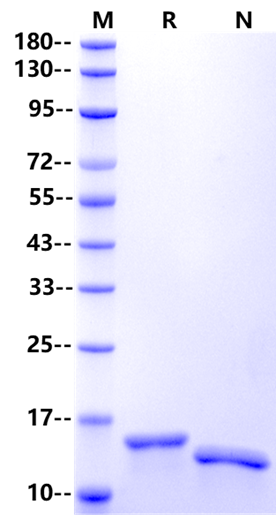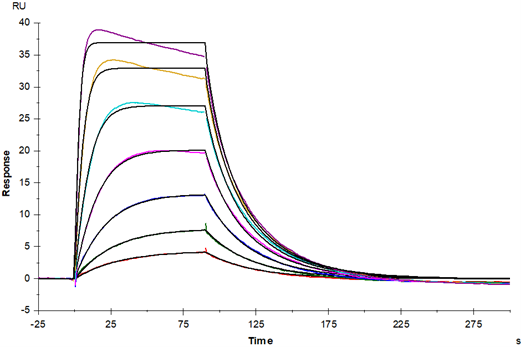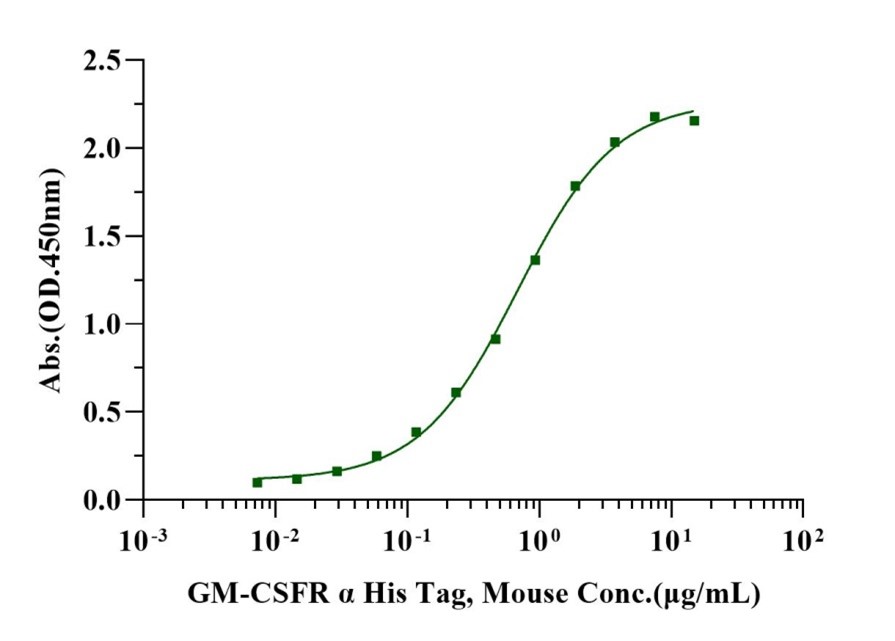 全部商品分类
全部商品分类


参考图片
Anti-His antibody Immobilized on CM5 Chip captured GM-CSFR α His Tag, Mouse, can bind GM-CSF, Mouse with an affinity constant of 6.38nM as determined in SPR assay.
Immobilized GM-CSF, Mouse at 2.0ug/mL (100uL/well) can bind GM-CSFR α His Tag, Mouse with EC50 of 0.61-0.77ug/ml.
Measured in a cell proliferation assay FDC-P1 cells, the EC50 for this effect is less than 0.02ng/ml.
2ug (R: reducing condition, N: non-reducing condition).
Measured in a cell proliferation assay FDC-P1 cells, the EC50 for this effect is less than 0.02ng/mL.
Anti-His antibody Immobilized on CM5 Chip captured GM-CSFR α His Tag, Mouse (Cat. No. UA010191), can bind GM-CSF, Mouse (Cat. No. abs05214) with an affinity constant of 6.38nM as determined in SPR assay.
Immobilized GM-CSF, Mouse (Cat. No. abs05214) at 2.0ug/mL (100uL/well) can bind GM-CSFR α His Tag, Mouse (Cat. No. UA010191) with EC50 of 0.61-0.77ug/mL.
2ug (R: reducing condition, N: non-reducing condition).









 用小程序,查商品更便捷
用小程序,查商品更便捷





